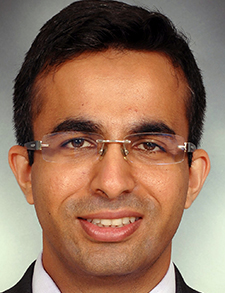In the field of medical education, there’s a growing recognition of the importance of incorporating learners in direct care services with hospitalists to address the needs of both the learners and the health care system.
This talk explored the reasons why learners need direct care service rotations, the benefits they derive from them, and the challenges that come with integrating education into these settings.
Dr. Martin mentioned that one of the reasons for incorporating learners on direct care services (DCSs) is to provide students with essential placement opportunities since traditional teaching services have become overcrowded, making it difficult for learners to achieve adequate attention and guidance.
Learners also gain one-on-one coaching and apprenticeship with attending physicians to allow them to develop their skills and knowledge more effectively.
Exposure to multidisciplinary teams and interprofessional education provides a comprehensive understanding of collaborative health care delivery, preparing learners for future practice in team-based environments.
In addition to learners, hospitalists also benefit from being fulfilled as medical educators especially since there has been a large growth in hospital medicine services with residency positions remaining relatively stagnant.
Dr. Nichani mentioned two models being used successfully at the University of Michigan. The senior resident hospitalist rotation is a model that allows residents to practice at the top of their graduated autonomy while honing advanced communication and handoff skills. It emphasizes providing high-value care and striking a balance between autonomy and supervision.
The hospital medicine subinternship provides an ideal platform for coaching and apprenticeship for medical students. It offers students the opportunity to work closely with attending physicians and thus develop their clinical skills and decision-making abilities under direct supervision. This model encourages active participation and engagement in patient care, fostering a sense of responsibility and ownership.
DCS placements often receive positive feedback from learners. Many consider it “the best rotation of my training,” according to Dr. Nichani, due to the invaluable one-to-one interaction between learners and attending physicians.
Hands-on learning experiences, increased autonomy, and the ability to tailor their learning and clinical care to meet individual goals are highly valued.
Additionally, mentoring relationships formed during such services contribute to learners’ professional and personal growth.
Several challenges do exist, and Drs. Martin and Nichani provided potential solutions for them. Inconsistent practices among attending physicians in evaluating learner performance can exist but this could be addressed using the reporter-interpreter-manager-educator model.
Communication of learner performance can be enhanced through dedicated sessions such as “feedback Fridays.”
Lastly, fragmented care models in such services can be a problem, but they can be improved by employing smart scheduling strategies for attendings.
Thus, incorporating learners on direct care services can benefit the learners, the hospitalists, and the health care system.
Key Takeaways
- Incorporating learners on direct care services expands educational opportunities for learners and alleviates overcrowding in traditional teaching services.
- DCS placements offer valuable benefits, including one-to-one coaching, exposure to multidisciplinary goals, and fostering learners’ professional growth.
- Hospitalists’ involvement in medical education plays a vital role in preparing future health care professionals through direct involvement with learners.
- Overcoming challenges via standardized evaluation frameworks, dedicated feedback sessions, and smart scheduling strategies is essential for the effective integration of learners on direct care services, optimizing continuity, and individualized education.

Dr. Mehta
Dr. Mehta is an academic hospitalist at the University of Cincinnati. He is an assistant professor of medicine and core clinical faculty with the internal medicine residency and has roles in quality improvement, program evaluation and improvement, and medical education.